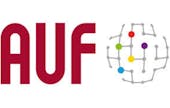Generally, projects are analyzed when they still ongoing or just at the end. Similarly, the analysis of power issues is generally being focused, in projects cases, on the problems of coordination and conflicting relations and their foundations. This doctoral thesis goes a little at the antipodes of these studies. First, it questions closed projects. Afterwards, even if it integrates the conflicting vision of power because of the closed nature of the projects, it additionally uses an alternative approach of power based on "powers of action".
Concretely, it takes interest in the projects that the Dutch and Belgian agencies have carried out in the municipality of Cobly in the North-West of Benin. To do so, it closely looks at the participation systems and the appropriation mechanisms designed and implemented in the constituted arenas. It also questions the intervention frameworks and the projects publicizing process. Plus, it seeks to know how the beneficiaries use, the supports that directly reach them or they "hijack", for their empowerment. In doing so, it has taken
the option to refocus reflection on the causes of problems and the actors really concerned. The methodological approach used for this research is a mix of socio-history and biographical approach.
It clearly appears, from the results and analyzes made, that the forms of formalized partnerships, the use of participation and the otherness of introduced clustering models have led to "negative" organizational governance, approximate results and differential appropriation's. The various mediated powers and the feelings they have left at actors’ level, have played a great role in these objectified situations. Sociohistorical literature requires that the stakes associated with the interactions made possible by the projects, the
participation modalities and the fundamentals of POs governance been co-constructed. Similarly, it asks that the learning systems and the capacities of the beneficiaries be constantly put into perspective through oriented decision-making processes. This literature also reveals that the scales generally used to evaluate the impact of projects have always rendered elusive, not only their real effects on the "Powers to act" of the beneficiaries, but also and above all, the effects of the powers they reinforce, on the trajectories of life of beneficiaries.
Keys words: Participation, Appropriation, Powers, Socio-history, Biography, Case study, Cobly-Atacora-Benin
Experience
-
–presentPostdoctorant en Sociologie-Anthropologie du développement, Université Libre de Bruxelles (ULB)
Education
-
2017Université de Liège_Royaume de Belgique, Sciences Politiques et Sociales; Option: Sciences Sociales; Orientations: Populations et développement



